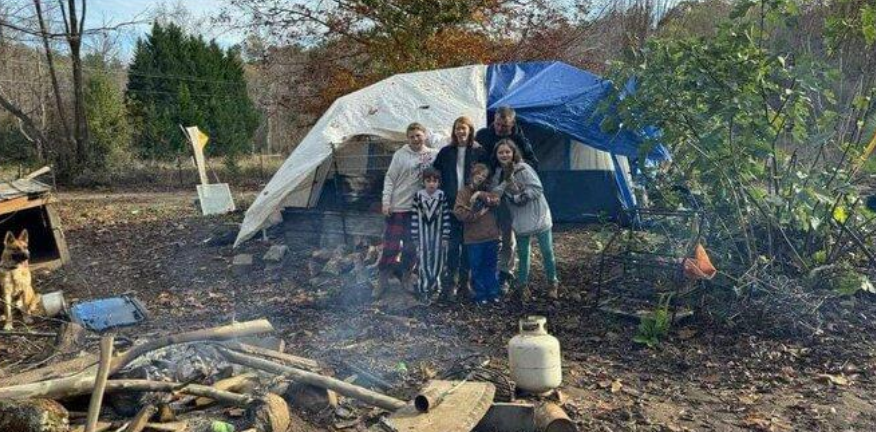In the aftermath of Hurricane Helene, which wreaked havoc in Western North Carolina nearly two months ago, the Federal Emergency Management Agency (FEMA) has faced intense scrutiny over its handling of the disaster response. The situation has been exacerbated by allegations of mismanagement, particularly the claim that FEMA has prioritized the needs of illegal immigrants over American citizens displaced by the disaster. As winter approaches, it is particularly alarming that many affected families, including children, are still residing in temporary shelters such as tents. This predicament highlights the urgent need for effective and politically neutral management within FEMA and a more efficient allocation of resources to those most affected by natural disasters.
Meteorologist Joe Bastardi has pointed out the dire weather conditions that are soon to affect the region, warning that temperatures across areas like Asheville are expected to dip into sub-freezing levels. This forthcoming cold snap coincides with reports from local outlets indicating that hundreds of families are still without permanent shelter, pushing some children to live in tents and cars. The Buncombe County Family Resource Center has even reported an alarming increase in homeless students since the hurricane, adding to the existing number of homeless children. These numbers underscore the gravity of the situation, revealing that over a thousand children are currently homeless due to the recent storm, and many families are now forced to navigate life in makeshift shelters as the weather deteriorates.
Visual evidence from local activists and journalists amplifies the heartbreaking reality of these “tent cities,” where entire families are struggling for survival. Despite these visible signs of need, FEMA has reportedly failed to act decisively to provide adequate support to the residents of these tent cities. On social media, frustrated citizens have expressed outrage over FEMA’s perceived inaction, noting the stark contrast between the conditions faced by hurricane victims and the resources allocated to illegal immigrants residing in hotel accommodations at taxpayer expense. This disparity has led to widespread condemnation and a growing sense of humanitarian crisis as winter rapidly approaches.
The frustrations directed at FEMA are further compounded by allegations that the agency has mismanaged its funds, with reports suggesting resources have been misallocated in favor of promoting equity initiatives rather than focusing on immediate disaster relief. Critics have claimed that FEMA has run out of funds intended to assist American citizens, with more resources seemingly directed toward non-citizens in a time of crisis. This has transformed the already dire situation into a humanitarian emergency, as those most adversely impacted by the hurricane face the prospect of enduring extremely cold weather without adequate shelter.
The juxtaposition between the living conditions for those affected by Hurricane Helene and the services provided to illegal immigrants has sparked outrage across social media platforms, where users question FEMA’s priorities. Many have shared personal testimonials recounting their family struggles to find shelter, while FEMA workers are described as residing in heated trailers. Such narratives reflect the growing sentiment among the public that the government is failing to adequately support its own citizens during a crisis, leading to calls for accountability from FEMA and higher levels of government.
As the situation continues to unfold in Western North Carolina, it is imperative that federal and state agencies reevaluate their disaster response strategies to ensure that American citizens receive urgent and necessary support during such crises. The combination of poor resource allocation, mismanagement, and neglect for those most in need underscores the necessity for strong leadership and a bipartisan approach to disaster recovery efforts, especially as the winter months draw near. Ultimately, the plight facing families and children in the aftermath of Hurricane Helene serves as a stark reminder of the importance of disaster preparedness and the need for equitable and effective responses to natural disasters.

